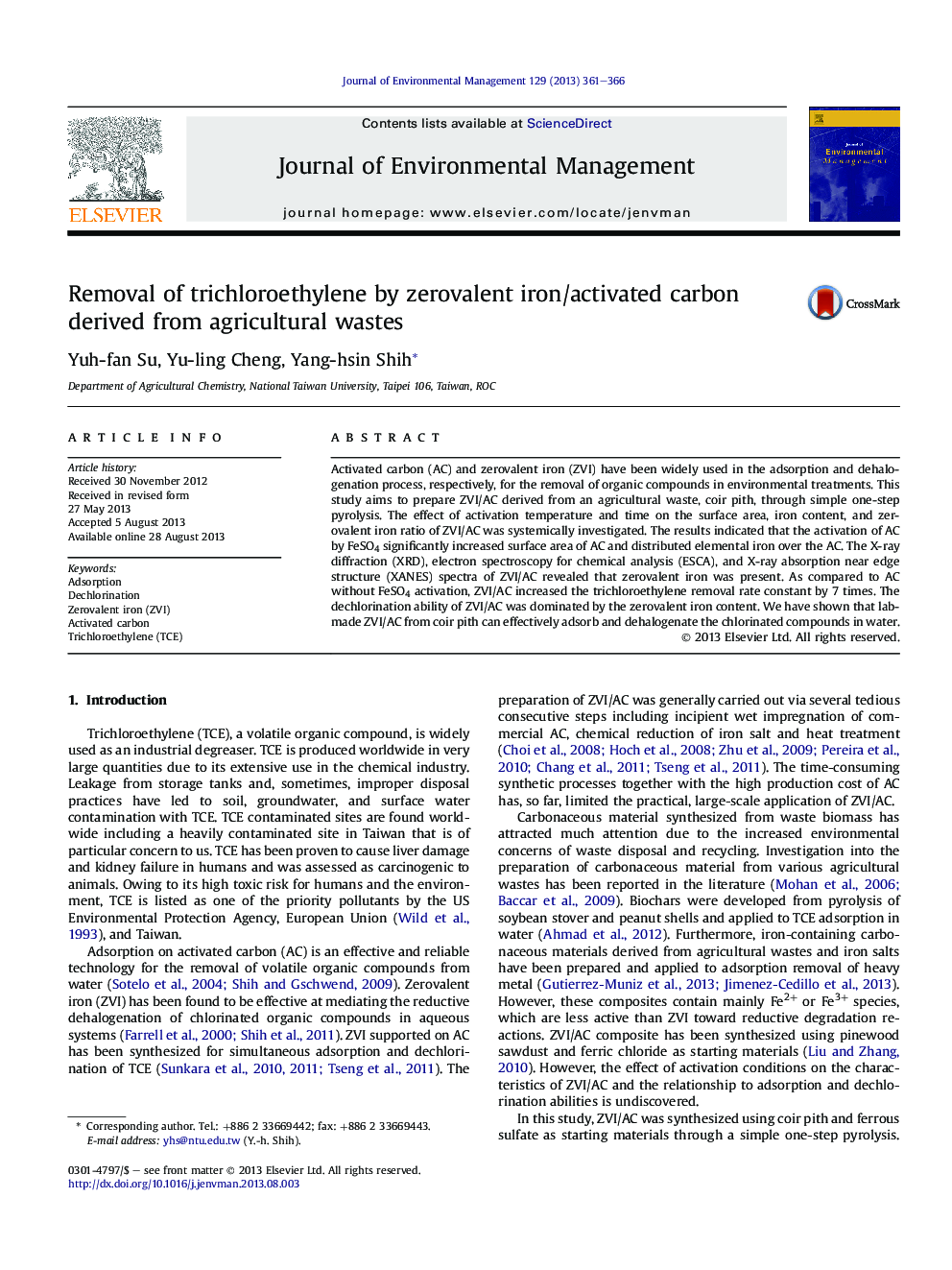| کد مقاله | کد نشریه | سال انتشار | مقاله انگلیسی | نسخه تمام متن |
|---|---|---|---|---|
| 1056179 | 1485283 | 2013 | 6 صفحه PDF | دانلود رایگان |

• ZVI/AC was synthesized from coir pith through a simple one-step pyrolysis.
• The activation of AC by FeSO4 increased surface area and introduced iron element.
• XRD and XPS results confirmed the existence of zero-valent iron on ZVI/AC.
• ZVI/AC increased TCE removal kinetics as compared to the AC without FeSO4 activation.
Activated carbon (AC) and zerovalent iron (ZVI) have been widely used in the adsorption and dehalogenation process, respectively, for the removal of organic compounds in environmental treatments. This study aims to prepare ZVI/AC derived from an agricultural waste, coir pith, through simple one-step pyrolysis. The effect of activation temperature and time on the surface area, iron content, and zerovalent iron ratio of ZVI/AC was systemically investigated. The results indicated that the activation of AC by FeSO4 significantly increased surface area of AC and distributed elemental iron over the AC. The X-ray diffraction (XRD), electron spectroscopy for chemical analysis (ESCA), and X-ray absorption near edge structure (XANES) spectra of ZVI/AC revealed that zerovalent iron was present. As compared to AC without FeSO4 activation, ZVI/AC increased the trichloroethylene removal rate constant by 7 times. The dechlorination ability of ZVI/AC was dominated by the zerovalent iron content. We have shown that lab-made ZVI/AC from coir pith can effectively adsorb and dehalogenate the chlorinated compounds in water.
Journal: Journal of Environmental Management - Volume 129, 15 November 2013, Pages 361–366